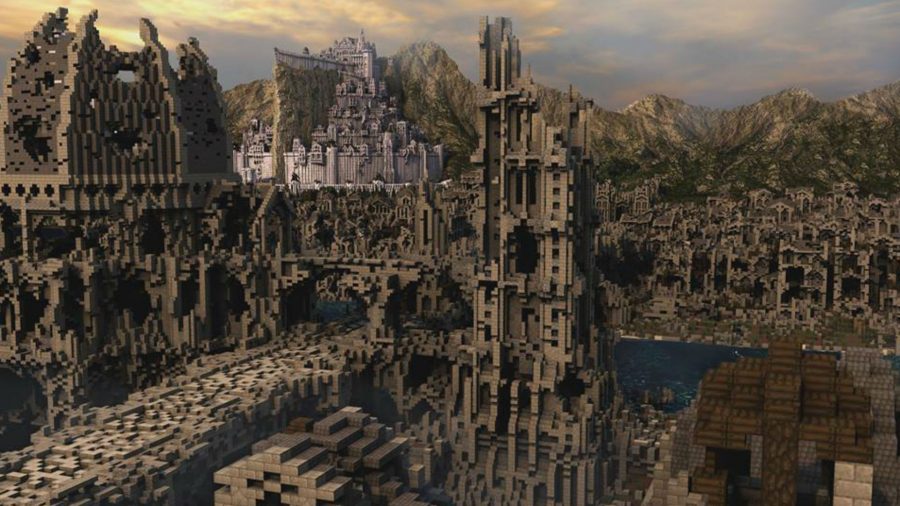In the first iteration of this series, we covered survival horror. Games which pit you against whatever nightmarish creatures the developers concoct. Largely devoid of horror, this variety of survival pits you against the world itself. Testing both your practicality and your tenacity to see if you’re capable of sustaining your own life. It sounds like an easier task, but the closer game mechanics draw to reality, the more challenging they become.
As with the world we regrettably inhabit, survival games typically take a much more open approach. Releasing you into the world at large to gather the means of survival at your leisure. This kind of free-form gameplay makes them ideal sandbox games, as the stand-out titles of the genre prove.
It’s also a very flexible set of mechanics that can fit into any setting. They encompass everything from free-roam zombie shooters like H1Z1 to primitive worlds like Rust and ARK: Survival Evolved. All they need do is abandon you to fend for yourself in whatever world they choose.
 Source: In-Game Screenshot
Source: In-Game Screenshot
The game is essentially a set of tools that players can use to create their own stories. From the tribalistic warfare, one can find in Rust to the development of towns and cities in Minecraft. People are free to set their ambitions and goals, working together or in opposition to fulfill them.
The appeal of a player-driven narrative such as this supersedes any the developer could impose on such a title. Even regarding things like marketing, the word-of-mouth tales these games create are unparalleled. When a new survival title is released, the internet is littered with stories of kidnappings and crusades. Even if that experience was a fifteen-minute speck in a six-hour session, it still interests people.
However, the game has to be very well constructed for this to occur naturally. If you don’t give people enough incentive to work together, you end up with a community like DayZ. The only stories that title seemed to generate were ones of players sitting for hours sniping spawn points. Or people wandering endless open planes to be gunned down without a word.
There’s no real potential for any story to emerge from that. It removes all compelling aspects from the otherwise repetitive gameplay. Especially given the setting of that title wasn’t a particularly unique or compelling one on its own merit.
Justifying the Survival Setting
The necessity of a compelling narrative-based element in these games is also highly dependent on their setting. As mentioned, DayZ suffered because its setting was generic. It had nothing else to set itself apart once it faced competition.
A title like Subnautica, on the other hand, has a very unique setting. This means it doesn’t need story content or a player-driven narrative to keep itself compelling. It’s an interesting enough challenge surviving in that gorgeous underwater environment. That serves as the game’s unique selling point, it needs nothing else to distinguish itself. ARK: Survival Evolved, another unique setting, also doesn’t need to tout story content. So long as it can boast the capacity to tame dinosaurs and use them against other players, it’ll be fine.

There are also survival games who’s narrative and setting are inexorably intertwined, like This War of Mine. The backdrop of conflict is the narrative element, pushing you to get your characters through it. Because the mechanics allow you to define the story, it needs nothing more. But without that setting, it would be sorely lacking.
The absence of an inventive setting leaves a gap, without a narrative to support it. That’s why most of the zombie titles in this mould perished. Without a compelling reason to persist, either through setting or story, you’re simply filling bars, so you can survive long enough to fill the bars again.
The Importance of Conclusions
It’s important to keep the gameplay from seeming purposeless in a survival title. Without multiplayer elements or a compelling setting, there’s one last resort to avoid this. Having an ending. While it might seem idiotic for a sandbox with limitless gameplay potential to have a definitive conclusion, it’s really not.
It provides a victory condition to work towards, in the absence of anything else. Few titles adopt this approach, as it’s easier to depend on their other facets. In the place of their ambitions or player-driven ones, it gives players something to work towards. It justifies the ostensibly repetitive cycle of gameplay.
Minecraft has a narrative conclusion, albeit one with zero build-up. Slaying the Ender Dragon does constitute the completion of the game in a Minecraft world. And it is possible to escape the world of Don’t Starve, essentially completing that too.
Both have minimal narrative throughout the game, but still leave the element at the end to work towards. And that’s because neither has a compelling setting to rely on, and both have a significant single-player following. The conclusion keeps things moving in the absence of alternatives. It’s also the only form of narrative a survival game like that can sustain. Procedural generation and sandbox mechanics don’t lend themselves to structured narratives.
Conclusion
What a survival game ultimately constitutes is a set of tools. Developers can use it to build their own tailored experiences or give those tools to players and let them create it. Both methods require some form of narrative, regardless of who creates it. Because without that, a survival game becomes a chore. Maintaining bars and gathering resources for the sake of surviving long enough to repeat the process.
It’s what ruined the original No Man’s Sky. It was utterly bereft of purpose. Once the developers realised their game hadn’t given people enough to make something out of their game, they provided it themselves in the form of explicit narrative elements.
Something to keep people hooked, to keep them moving forward is key, regardless of what form it takes. Whether or not you’d call that an explicit narrative is debatable, but it needs it.












